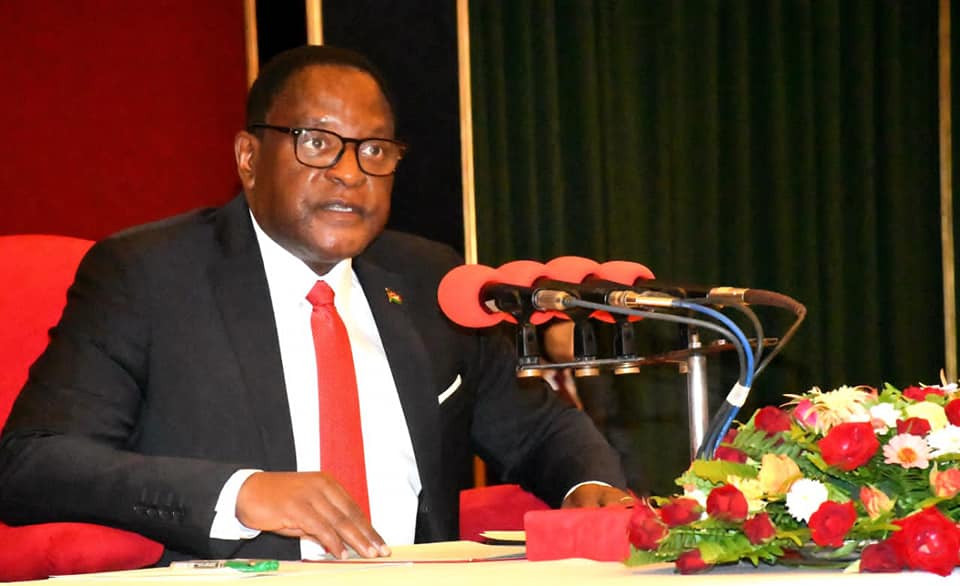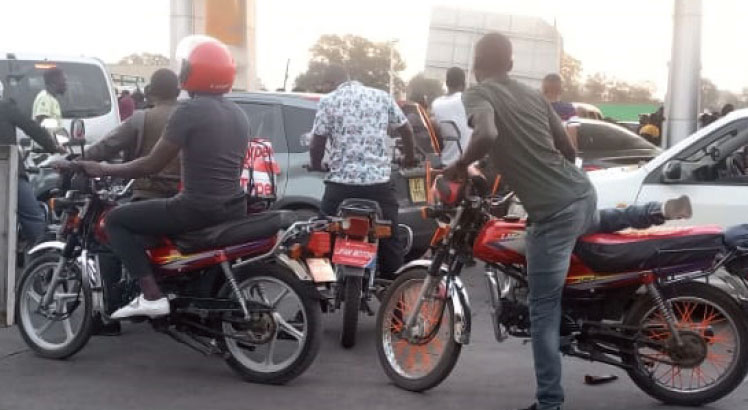Chakwera admits fuel crisis
President Lazarus Chakwera has publicly admitted that fuel shortages are resulting from foreign exchange shortages, and has since said his administration is pushing to secure $50 million . (about K50.5 billion) to normalize importation flow .
His statement comes after National Oil Company of Malawi (Nocma) and Malawi Energy Regulatory Authority (Mera) blamed the fuel shortages on hoarding and increased demand due to entertainment events.

But Chakwera in his address yesterday during the 2022 Economist Impact Summit in Lilongwe, said he held a crisis meeting at Kamuzu Palace with Nocma and Mera officials on the fuel shortage.
He said the government has # secured $28 million (around K29 billion) from local banks for fuel importation and is seeking another K50 billion facility.
Said Chakwera: “We have, therefore, already secured $28 million dollars from local banks for this purpose, and we are in pursuit of another $50 million dollar facility for the same.”

He further said he has instructed the Reserve Bank of Malawi “to prioritise fuel procurement in the allocation of any forex we secure.”
Chakwera stated that, through the interventions his administration is undertaking, over six million litres of fuel was on its way into the country.
“At the same time, we have doubled the daily distribution of the product we already have in our reserves to ease the burden, and I want to thank all Malawians for their patience as we attend to this problem as a matter of urgency,” he said.
In addition, the President confessed that the fuel shortages and power outages were disrupting economic growth amidst low industrial productivity and hesitation among potential investors.
However, he promised that power interruptions which have subjected homes and industries to loadshedding extending as long as 12 hours, will be addressed by December this year.
Chakwera, who lead the Tonse Alliance, which came to power on the promise to end power blackouts, among other pledges, confessed that his bid to improve people’s livelihoods through employment creation and food security was affected by Tropical Storm Ana and Covid-19 pandemic.
He said: “I am talking about communities whose economic activities have been setback years by climate change impacts, industries that have been decimated by Covid-19 pandemic, supply chain disruptions caused by policies and wars in foreign lands, and a mountain of toxic debt that has shrunk the manouvrability of our fiscal space.
“This is why we are actively engaged in intense negotiations with local, regional, and international financial institutions to create facilities that will help us surmount this obstacle.”
Reacting to the President’s sentiments yesterday, Centre for Social Accountability a n d Tr a n s p a r e n c y executive director Willy Kambwandira, while commending Chakwera for publicly admitting that the country is facing fuel and forex challenges, said the lack of long-term strategic plan for fuel supply is not impressive.
He said the President missed an opportunity to state his long-term plan to ensure continued fuel supply.
Said Kambwandira: “It is good that the President has finally been honest and frank acknowledging the fuel/forex crisis because not so long ago, Nocma [acting chief executive officer Hellen Buluma] and the Minister of Energy [Ibrahim Matola] lied to Malawians that the country had enough fuel reserves.
“However, from our position, this is a missed opportunity as the President failed to explain how he intends to decisively deal with the fuel and forex crisis in the long-term apart from borrowing from the local banks.”
In an interview on the sidelines of the summit, N a t i o n a l P l a n n i n g Commission director general Thomas Munthali, whose commission oversees the implementation of the Malawi 2063 (MW2063) strategy, said the country needs to focus more on long-term solutions when addressing potential causes of economic crises.
Among other solutions, he said the country needs a financial buffer it can turn to during energy and fuel crises if the country is to transform the nation into an inclusively wealthy and self-reliant industrialised upper-middle-income country by the year 2063.
“In the short-term, like the $50 million and $28 million fuel packages that are being worked out, we need to ensure that immediately we need to reverse the situation that we are facing. As that is happening there should be long term investments,” said Munthali.
The one-day summit was designed to explore opportunities and challenges for investment, attracting potential investors, diplomats, private and public sector executives.






One Comment